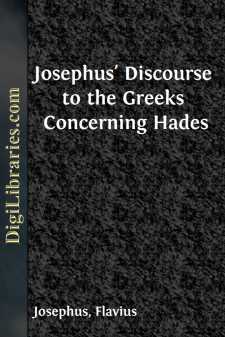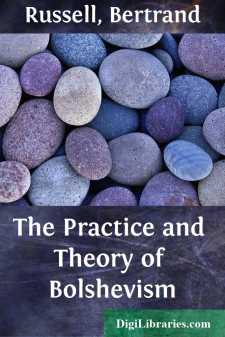History
- Africa 30
- Americas (North Central South West Indies) 50
- Ancient 68
- Asia 58
- Australia & New Zealand 8
- Canada 41
- Caribbean & West Indies 1
- Civilization 20
- Eastern Europe 12
- Europe 310
- Expeditions & Discoveries 60
- General 77
- Historical Geography 1
- Jewish 9
- Latin America 3
- Medieval 8
- Middle East 13
- Military 248
- Revolutionary 8
- Study & Teaching 5
- United States 353
- Western Europe 56
- World 13
History Books
Sort by:
by:
Flavius Josephus
1. Now as to Hades, wherein the souls of the of the good things they see, and rejoice in the righteous and unrighteous are detained, it is necessary to speak of it. Hades is a place in the world not regularly finished; a subterraneous region, wherein the light of this world does not shine; from which circumstance, that in this region the light does not shine, it cannot be but there must be in it...
more...
CHAPTER I. BRAZILIAN AND PORTUGUESE FACTIONS—DON PEDEO ORDERED TO QUIT BRAZIL—APPOINTED "PERPETUAL PROTECTOR"—PROCLAIMED EMPEROR OF BRAZIL—EFFORTS TO OBTAIN FOREIGN OFFICERS AND SEAMEN—THE NAVAL COMMAND OFFERED TO ME—ACCEPTATION THEREOF—ARRIVAL AT RIO DE JANEIRO—VISIT OF INSPECTION TO THE SQUADRON—CONDITION OF THE VESSELS—INFERIORITY OF SEAMEN—IMPERIAL AFFABILITY—ATTEMPT...
more...
THE GREAT TORNADO. The Summer of 1877 has been remarkable in some localities for the severity of its storms. These, in several instances, have partaken of the character of tornadoes. Mt. Carmel, in Illinois, was nearly destroyed about the 20th of June last; Pensaukee, in Wisconsin, was nearly ruined on the 8th of July, and Pittston, in Massachusetts, suffered terribly from a tornado on the same day....
more...
CHAPTER I. INTRODUCTION. MY DEAR CHILDREN,—All of you who read this little book have doubtless heard more or less of slavery. You know it is the system by which a portion of our people hold their fellow-creatures as property, and doom them to perpetual servitude. It is a hateful and accursed institution, which God can not look upon but with abhorrence, and which no one of his children should for a...
more...
NAVY SHIPS More than one-third of our naval force was being reviewed by the President. A most impressive assembly of men-o'-war it was, in tonnage and weight of metal the greatest ever floated by the waters of the western hemisphere. The last of the fleet had arrived on the night before. From the bluffs along the shore they might have been seen approaching with a mysterious play of lights across...
more...
PREFACE. The two dramas,—PICCOLOMINI, or the first part of WALLENSTEIN, and the DEATH OF WALLENSTEIN, are introduced in the original manuscript by a prelude in one act, entitled WALLENSTEIN'S CAMP. This is written in rhyme, and in nine-syllable verse, in the same lilting metre (if that expression may be permitted), with the second Eclogue of Spenser's Shepherd's Calendar. This prelude...
more...
Fellow-Citizens of the Senate and of the House of Representatives: It is to me a source of unaffected satisfaction to meet the representatives of the States and the people in Congress assembled, as it will be to receive the aid of their combined wisdom in the administration of public affairs. In performing for the first time the duty imposed on me by the Constitution of giving to you information of the...
more...
by:
John McElroy
INTRODUCTION. The fifth part of a century almost has sped with the flight of time since the outbreak of the Slaveholder's Rebellion against the United States. The young men of to-day were then babes in their cradles, or, if more than that, too young to be appalled by the terror of the times. Those now graduating from our schools of learning to be teachers of youth and leaders of public thought, if...
more...
by:
Jefferson Davis
PREFACE. The object of this work has been from historical data to show that the Southern States had rightfully the power to withdraw from a Union into which they had, as sovereign communities, voluntarily entered; that the denial of that right was a violation of the letter and spirit of the compact between the States; and that the war waged by the Federal Government against the seceding States was in...
more...
by:
Bertrand Russell
I To understand Bolshevism it is not sufficient to know facts; it is necessary also to enter with sympathy or imagination into a new spirit. The chief thing that the Bolsheviks have done is to create a hope, or at any rate to make strong and widespread a hope which was formerly confined to a few. This aspect of the movement is as easy to grasp at a distance as it is in Russia—perhaps even easier,...
more...











